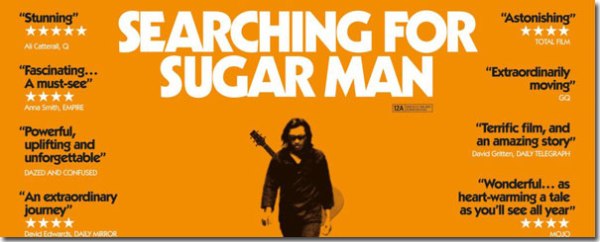
I’ve often speculated that our golden age—like many
others before it—must sooner or later be followed by a corresponding dark age
of confusion and ignorance in some Hegelian meta-dialectic of history that must
trump the comparatively logical meanderings of evolution, both biological and
cultural. We’ll have to start all
over—won’t we?—the only question being the starting point. Our current cultural trajectory—gas-guzzling
and mass-consuming and baby-producing—is simply not sustainable. Everybody knows it—witness the many end-of-days
movie themes—yet no one is doing anything about it. There are no futuristic movies of healthy
functioning societies. No, they’re all
dysfunctional… unless they’re on a spaceship.
The glory that was Peoria
(my metaphor for high-tech civilization superimposed upon not-so-high-tech
societies) may all crash down precipitously, unless some governments and societies
can figure out a way to make the changes incremental and less drastic. The guy with the sign reading, “The end is
near,” just may be right. Global climate
change aside, the poop just may hit the ventilator regardless of what we do.
And sure enough dialogue in the US seems to have turned
nasty in the last few years, as if the election of a black President—an intelligent
black President at that—were reason enough to throw all social niceties to the
wind and hunker down for the impending Apocalypse, every man for himself and a
woman for him, too, barefoot and pregnant and begging for forgiveness. With the possible exception of the new
poverty classes, probably nothing illustrates the paradigm shifts underway
within modern societies better then the rise of a certain social medium or two
which has changed the way people interact, socialize, and even think. That’s medium—neither rare nor
well-done. If Facebook is the paradigm
and ultimate dictator of short-attention-span fashion, then Twitter, Tumblr,
and another large handful of online commentaries are the ranks and hierarchies
through which multitudes of blogs and lesser opinions find their way into the
critical mass of consciousness.
The mainstream media even gets swept into the fray through
their online offerings, and it ain’t all pretty. Read the comments below any online article,
no matter how minor, and the vitriol, hatred, and stupidity are so thick as to
be almost incomprehensible from any rational viewpoint. Everybody’s an expert now, and a critic, too,
and full of opinions that preclude any compromise. If Internet is the new democracy, then social
media are the new tyranny. Like an
earlier Industrial Revolution was the death of the craftsmanship that preceded
it, the new technological revolution could be the death of professional
expertise, intelligent commentary, and even worse—politeness. Apparently it’s occurred to few people that
‘kissing up’ is not the only reason to be polite. Civil discourse and tolerance of opposing
positions is good in itself.
Notwithstanding that “politeness” and “politics”
ultimately derive from the same root word, the concept extends far beyond the
sometimes life-and-death business of government into fields that are nothing
but matters of opinion, such as the arts.
We aren’t nasty to each other for political expediency. We’re nasty because it’s in our lower nature
to be so, and that’s all anyone seems to care about anymore. Criticism—whether literary, music, film, real
estate or whatever—can be tricky business.
Obviously it’s opinionated, by definition, but sometimes the critic can
simply be wrong or misguided. The critic
should have some credentials in the field in which he’s critiquing, preferably,
but that seems to be no deal-killer usually.
Since reviews are usually written, he or she should also be a good
writer, but… you know. In fact sometimes
a critic can offer a better critique in a field in which he’s not also a
creator, something about conflicts of interest, I suppose.
Anyway I think I’ve seen both sides of this (I review
music; others review my writing) and have formed a few habits of conscience and
convenience. For one thing: I don’t
skewer people. That’s people—full of flesh
and blood and intent and hard work. Hollywood poster-boys and assorted sacred cows are
another matter. Still for the most part,
if I don’t particularly care for something, I just leave it alone. There are plenty of other things out there to
review. The requirements of a polite
society to me are more important than the need to try to gain some ground by
diminishing others. Somebody has to be
pretty pretentious—AND over-hyped—for me to want to take out the poison pen.
Still, many critics do.
And when they do, perhaps it’s only fair to hold up the mirror to their
own work, not always easy since most critics are not also creators of original
material. This is my feeling toward
Henry Rollins right about now. Now I’ve
always felt a certain amount of respect for Henry, even if I wasn’t any huge
fan of his work. Fact is, I’ve heard
very little of his music, simply because radio stations don’t usually play it,
so there’s that. But I have read much of
one of his books, simply because it was one of the few things I had to do in Pudva, Montenegro,
in a stopover there some three-four years ago.
I was not particularly impressed, but still not vengeful toward the
man. He travels widely and espouses it
wildly, so that’s good. And I’ve read
his LA Weekly columns and listened to his radio shows on KCRW since becoming a
reluctant Angeleno, enjoying them both, so we should be good, right?
Then he went and dissed Jack Kerouac. He shouldn’t have done that. He didn’t have to, but he did, describing his
work as something like “total BS.” That’s
a harsh judgment, and an insult to any of us Kerouac fans, not to mention Jack
himself, may he R.I.P. He could’ve just
said, “not my cuppa tea,” and left it at that.
Rollins is lucky he didn’t say that about W. S. Burroughs. I’ve got a gun, and I know how to use it—just
kidding. What most people never
understood about Jack was that he was essentially a poet, albeit a narrative
one, and at the same time the chronicler of an age. Now by all appearances, Kerouac and Rollins
should be sharing the same side of the dial, whether musical or literary, so
I’m not sure what the problem is, probably something similar to the same reason
Mick Jagger felt inspired to diss Patti Smith, something about dissing someone
whose turf you envy and couldn’t touch with a ten-foot body part.
Regardless, I’d say confidently that Jack Kerouac could
write spiral bindings around Henry Rollins, most obvious when Henry seems like
he actually wants to be and do Jack, much less obvious when he sticks to the
journalistic music criticism and curation which he really does quite well quite
frequently, albeit in his own fashion. To
support this theory, I offer the following evidence, a sample of Mr. Rollins’
own writing in a recent LA Weekly column.
I’m not saying it’s bad; I’ll only say, “Imagine how Jack might’ve
treated the same material,” then make your own decision:
September is upon us.
In its final weeks, August was staggering crookedly, profusely bleeding from
the puncture wound in its side from a dagger shot by an assassin dispatched by
our collective heat-fueled discontent. Every year, August lashes out in
volcanic fury, rising with the din of morning traffic, its great metallic wings
smashing against the ground, heating the air with ever-increasing intensity.
August, the great and doomed warrior of summer, knew that the end was near. Yet
so titanic is its rage, it will takes weeks for its body to cool.
Late summer is fired,
blasted winds, beginnings, middles and ends -- all ending. For some it's a
parting wave to youth, love, conquest and deathless time. In the face of this
destruction there is revelation, epiphany, agony and exhaustion. Empty pursuits
on fruitless plains in search of lightning, or perhaps even nothing.
We know it, therefore
we must slay it. We know that in September, we will wander through the warm
winds of summer's wreckage. We will welcome summer's ghost…
There’s more, too, if you want it. Follow the link. So you decide. Critics are people just like you and me. The only difference between a critique and a
criticism is that the critique has a publisher.
Ultimately, though, the consumer is judge and jury. That’s you; you vote with your pocketbook. To all critics, I only suggest: be polite and
be open and most of all, be professional.
Opinions and shallowness are two closely related concepts. I’ll still be a fan of Mr. Rollins btw, but
only for the things he does best.
Sometimes the medium is not the message; the message is. BTW, I’ve now listened to Mr. Rollins’ own
story-telling on mySpace while prepping this article, and guess what? Not bad…
I’ve also listened to his original head-banging stuff on spotify from
way back when, and… you know. We’ve all
grown up.
For my own part, this is something of a crossroads for this
blog. I’ve taken a bit of a break from my
music reviews, not because I feel lazy or uninspired (okay, maybe a little),
but mostly because I’ve been too busy with another project, the compilation of
a couple of guides to hostels, the first in a series of a half-dozen intended
to cover the entire world. Still, I hope
and expect to turn some attention back to this blog soon, BUT… it may not be
the same as before. As a few of you may know,
I have some background in film, too, more than music in fact, so long have
wanted to do some film reviews, too, especially the foreign films which almost
never get press in the good ol’ US, and hopefully even art films which hardly
ever get press anywhere. Unfortunately
film PR people don’t send me advance copies of films to review, not yet anyway…
bummer. Still, in the age of Netflix,
that shouldn’t be a deal-killer, should it?
I mean, it’s not like I ever paid that much attention to the publicist’s
rap anyway, and I’d certainly never reprint ad copy verbatim. Sooo… stay tuned.
Peoria website










